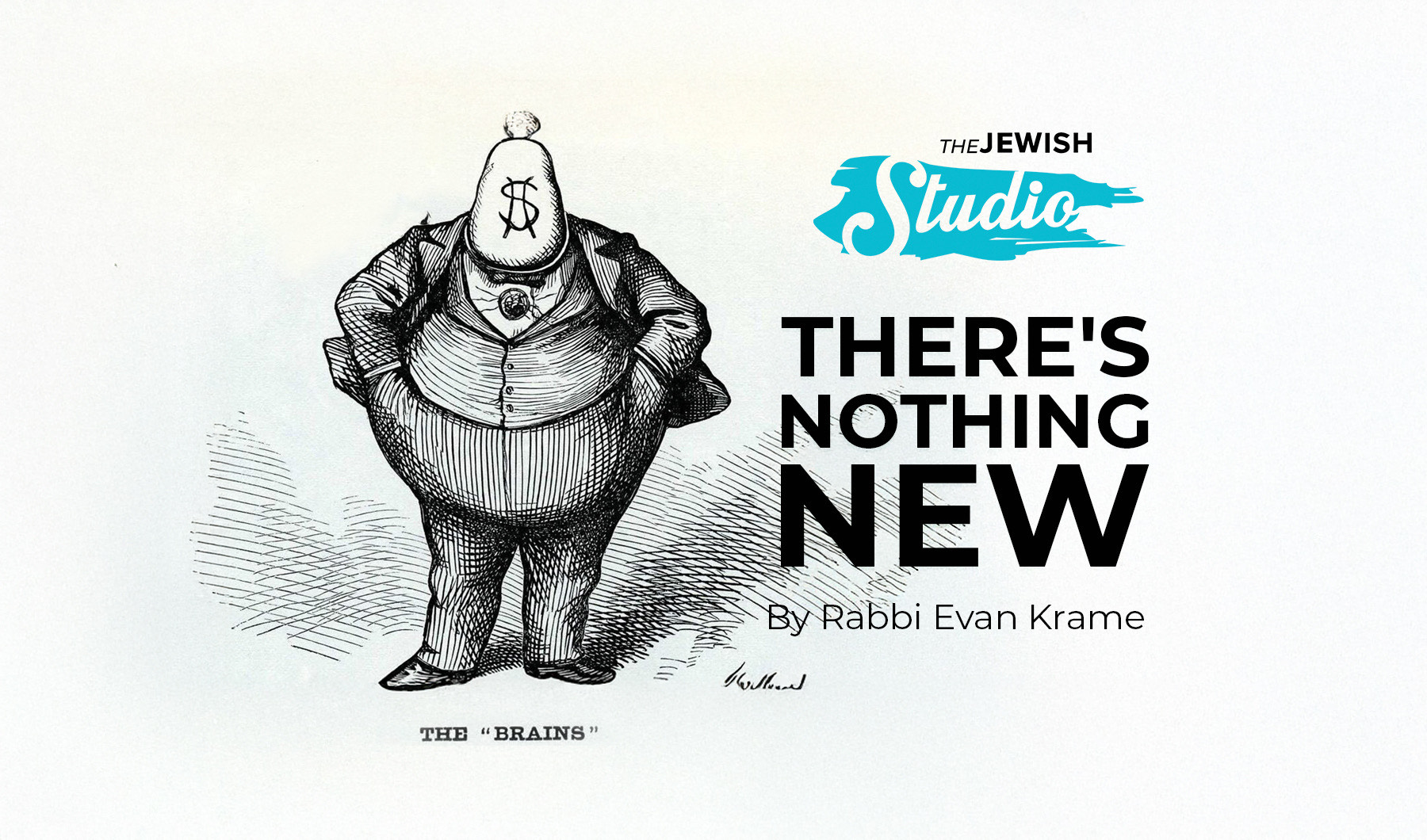There’s a TED talk that begins with a story—a tale of a transatlantic flight, where a couple heads to a vacation in Scandinavia. Suddenly, turbulence strikes! The plane dips and sways, and from the back, a band of teens erupts in joyful whoops, as if riding a roller coaster of the skies.
But then, the turbulence escalates—an even more abrupt drop! Ceiling panels tremble, wires hang like vines in a storm, and dust clouds the air. Fear grips the hearts; some weep, some pray. The captain’s voice cuts through the chaos: “Please stay calm! This aircraft is structurally secure and built to endure far greater turbulence!” And yet, as the plane steadies, the TED talk speaker shares a truth that resonates deep within: she no longer feels safe flying. Her husband, however, marvels at the craft’s resilience. Same facts, different conclusions.
There is a lesson here about perception! From one unfortunate episode, from the same set of facts, we can be filled with dread or awe. Will we tremble at the turbulence or lift our eyes in wonder? Both reactions spring from the same experience. Neither is wrong!
Our responses are shaped by our histories, our personalities, our very beings.
Some might call this “confirmation bias”—the tendency to see what we wish to see, to cling to our beliefs while dismissing the contrary. But I stand here today, my friends, to speak of a greater truth—a truth about the turbulent times that we navigate, particularly when it comes to Israel.
I was a history major in college, I went to law school, got a master’s in taxation and then smicha as a rabbi. None of these qualify me to speak about the geopolitics of the Middle East. I am just barely qualified to discuss the moral and ethical dilemma of the last year of war. And to those of you who think you know my position on Israel, . . . I haven’t settled on a position. Like many of you, I have teetered on the see-saw of emotions – crying for our Israeli sisters and brothers, lamenting the Palestinian suffering.
If I did not speak of Israel, it would be rabbinic malpractice! And if you squirm in your seats, I invite you to take a breath. I tried to chose words steeped in our rich, complex Jewish tradition. I stand here only qualified to ponder the moral and ethical dilemmas we face. Like many of you, I have wavered on this see-saw of emotion—grieving for our Israeli sisters and brothers, lamenting the suffering of Palestinians.
Indeed, we have all endured a year of turbulence, wrestling with the events since October 7. While some wish to turn away, others strive to remain informed. Some focus on the dread and others are filled with awe. Yet we are all on this same flight, navigating through the storm, our biases tethering us to certain truths, while others slip away.
The Torah teaches us that we may defend ourselves against those who wish to harm us. Leviticus 26:7 declares, “Your army shall give chase to your enemies, and they shall fall before you by the sword.” The Talmud confirms that if enemies besiege you, even on Shabbat, you may act to protect your life.
Yet, Proverbs 24:17 warns, “If your enemy falls, do not exult; if he trips, let your heart not rejoice.” There is no moral equivalence in mourning the loss of life, Jewish life, Christian life, Bedouin life, or Arab life, the life of my beloveds, and the lives of my enemies.
We are reminded in the Midrash: as the Egyptians drown in the sea, the angels wish to sing, but the Lord rebukes them, saying, “My creations are drowning, and you are singing before me?” We, too, must not rejoice in the downfall of any person, for we all descend from one person, Adam, one source, God.
And God is not gladdened by death; God mourns with us.
These have been horrific days October 7, October 8, October 9, October 10, and — days that have stretched into sorrow, loss, and continued suffering, for Israel and for its adversaries.
We must attack before we are struck, yes! Israel must push back evil from its borders. But we must also pray for the wicked to change, not to perish. We cannot sing while God’s children are lost to violence, bullets and bombs.
Jewish tradition is asking: Can you hold both ideas simultaneously? Can you both be afraid of flying while marveling at the technology that allows planes to fly safely? Can you support a secure Israel without encouraging excessive violence to human life?
Jewish tradition asks us: can we hold these two competing truths together in our minds and hearts? Can we support a secure Israel while advocating for the sanctity of life? The first anniversary of the October 7 attack approaches, and with it, commemorations and demonstrations worldwide. What will be our goal? Revenge or reconciliation? Or something in between.
In the space between awe for God’s creation and fear of man’s capacity for evil, comes Morality. Morality is complex. Morality requires both courage and compassion.
During the American Revolutionary War, the patriots deployed techniques learned from the Native Americans – what we now refer to as guerilla warfare. Subterfuge, ambush, and stealth wore down the British. Guerilla war demoralizes the enemy and gives the radical self-ascribed moral standing.
In the twentieth century and now twenty-first century, terrorism is the continuation of politics by brutal means. The tools of war eveloved. The processes of war changed.
Terrorists flew planes into buildings. Terrorists use gliders to cross border walls and rockets to decimate homes.
As Carl von Clausewitz, a political observer and moralist, would say “war is nothing but the continuation of politics with other means.” As the world became accustomed to terrorism, Clausewitz would describe terrorism as another political tool.
The Palestinian liberation movement and Muslim extremists embraced worldwide terrorism as their politics of choice. They too claimed moral superiority and declared terrorism as a moral duty. Americans did it to fight the British. Jews did it to gain control over Palestine.
Judaism advises that morality should dictate our path. Our tradition favors peace over violence, and co-existence over war. Psalm 34 calls us to “Seek peace and pursue it.”
Yet, we should not forget that the right to self-defense is a moral imperative, too. We must balance the sanctity of life with the right to defend one’s self. If we believe in the sanctity of life, then Israel must defend itself.
Chicago-born writer G.P. Gottlieb has written, “You are morally right to wish for a Palestinian state that recognizes Israel and seeks peaceful coexistence … It’s ethically caring to wish that Israel kills only Hamas militants and Hezbollah fighters — and the world is right to be upset about the deaths of ALL innocent civilians
“But you are morally bankrupt if you don’t demand that Hamas return all hostages. You are morally bankrupt if you don’t demand the eradication of the Hamas terror regime, which began this war … with the horrifying and barbaric massacre of 1200+ babies, children, women, and elderly, and the kidnapping of over 240 civilians. [And you are] especially [morally bankrupt] because the Hamas charter …advocates the … destruction of Israel and the death or expulsion of all its Jews.”
Moral equivalency invalidates rights and obligations, Moral equivalency adds to the anguish and suffering of people.
To those who only speak of Israel’s moral obligations, or speak of Palestinian suffering,
To those who speak only of Israeli anguish or who speak only of Palestinian terror,
Both Jewish law, and a moral universe, say that there is no “only.” There is no “only.”
We all have access to the same facts, but our perspectives naturally narrow. We are all flying on the same plane. Some favor awe for the miracle of flying. Others are filled by dread. But there will be bumpy flights and some accidents. And there will be more travel, nervous flights, to vacations and family visits. There is no “only.
I stand here proud to advocate for Israel—my heritage, our future. I weep for the Palestinian lives lost, for my Jewish tradition demands compassion. Both truths can coexist. Both must coexist.
I can disapprove of the current Israeli government while decrying the evil of Hamas and Hezbollah. Both are valid.
I can advocate for peace while pressing Congress to provide weapons to Israel. Both are necessary!
So let us be sensitive to our choices. Let us support Israel’s right to defend itself without celebrating lost lives. This, my friends, is our Jewish tradition—a call to morality when the way is not clear. When it seems like the ceiling is caving, and the journey is fraught that is the time to sense both the dread and the awe.
May the One who makes peace in the heavens bring peace to our world. May we safeguard those under attack, protect the vulnerable, soften the hearts of the warlike, and strengthen those who defend the innocent
And as I lament the loss of good and blameless souls, I stand proud, declaring with all my heart, Od Yavo Shalom, There will be peace.





